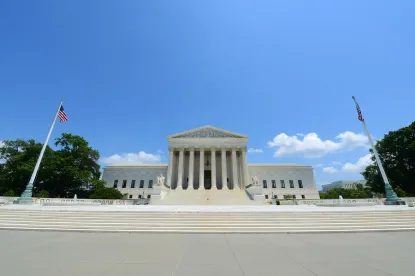Goldman Sachs Group, Inc., et al. v. Arkansas Teacher Retirement System
Shareholder class action litigation involving securities fraud most frequently is alleged as violations of the 1934 Securities Exchange Act (the ’34 Act). Under section 10(b) of the ’34 Act and its implementing Rule 10b-5, a plaintiff must prove (1) a material misstatement or omission, (2) scienter, (3) a connection with the purchase or sale of a security, (4) economic loss, (5) loss causation and (6) reliance.
For class certification, plaintiffs also must satisfy the requirements of Federal Rule of Civil Procedure 23, showing “questions of law or fact common to class members predominate over any questions affecting only individual members.”
The Basic Presumption
Usually, section 10(b) plaintiffs face significant challenges in meeting this “predominance” requirement, as each putative class member purchased the security for their own reasons. These individual reasons preclude a finding of predominance due to the unique and individualized nature of reliance. This confounding difficulty was acknowledged by the U.S. Supreme Court in Basic, Inc. v. Levinson, 485 U.S. 224 (1988) when the Court recognized the “fraud on the market” theory of reliance. Section 10(b) class actions now became easier to plead and prove as the Court recognized a presumption that investors rely on the integrity of the market price reflecting all material public information (which includes fraudulent statements) when securities trade in an efficient market. Thus, the Basic presumption negates any need to show reliance on a case-by-case basis, ultimately paving the way for a class action.
A defendant can rebut this presumption with evidence severing the link between the alleged misrepresentation and price impact. If the representations did not actually affect the market price, the link to the “misrepresentations” would be severed. The burden of producing evidence to sever the link rests with defendants; i.e., they have the obligation to come forward with evidence to support their claim. Once met, the burden of persuasion generally shifts to plaintiffs, who must persuade the trier of the facts about the truth of a proposition affirmatively asserted.
The Goldman Sachs Decision
The Supreme Court’s decision on Goldman Sachs Group, Inc., et al. v. Arkansas Teacher Retirement System, No. 18-3667 (2d Cir. 2020) has the potential to rearrange this present paradigm. The Supreme Court heard oral argument on Goldman Sachs on March 29, 2021, and attorneys handling section 10(b) and Rule 10b-5 claims must be prepared to react to the potential fallout of the upcoming opinion. Two main questions arose that could have a profound impact on the securities litigation landscape:
-
Whether a defendant in a securities class action may rebut the presumption of class-wide reliance recognized in Basic by pointing to the generic nature of the alleged misstatements having no impact on the price of the security
-
Whether a defendant seeking to rebut the Basic presumption has only the burden of production, or whether it also has the burden of persuasion.
Depending on the holding of the Court, it is possible a plaintiff could rest on the evidence regarding the Basic presumption in the face of direct evidence of no price impact by defendants. If the Court leans toward defendants, the generality of alleged misstatements would be strong evidence the statements did not have a price impact. Thus, the production of evidence to rebut the Basic presumption could nip class actions in the bud. Ultimately, the generic language of the statement should remain relevant. Most likely, the Court will vacate with instructions to consider all information when addressing the rebuttable presumption, which includes the general language at issue.
Regarding the burden of production, once a defendant produces evidence sufficient to rebut the Basic presumption, the burden should remain with the original party – the plaintiffs. If this changes after Goldman Sachs, defense counsel will need to prepare an aggressive defense, when at the same time many clients will feel pressure to settle at earlier stages.
Conclusion
In the final analysis, astute defense counsel must be prepared to encounter a potentially changed landscape. For if the generic statements at issue in Goldman Sachs ‒ made by most issuers ‒ merit certification of a securities class action, then class certification will likely be granted in any case where stock price declines on the heels of negative news.



 />i
/>i

